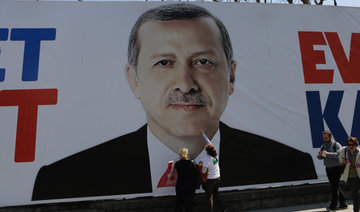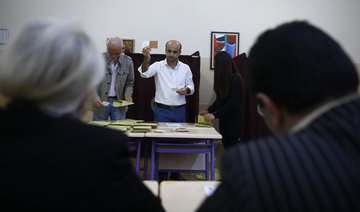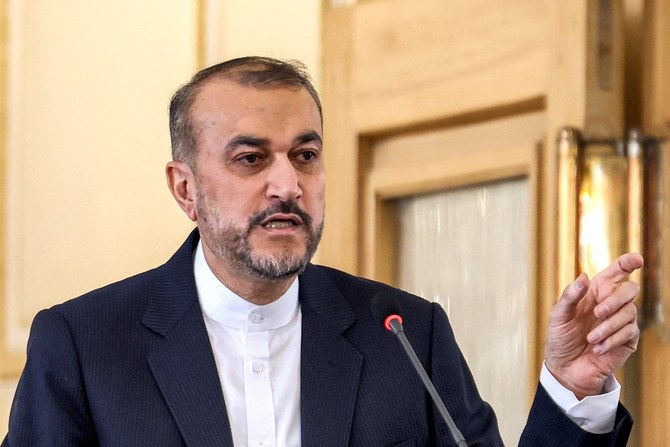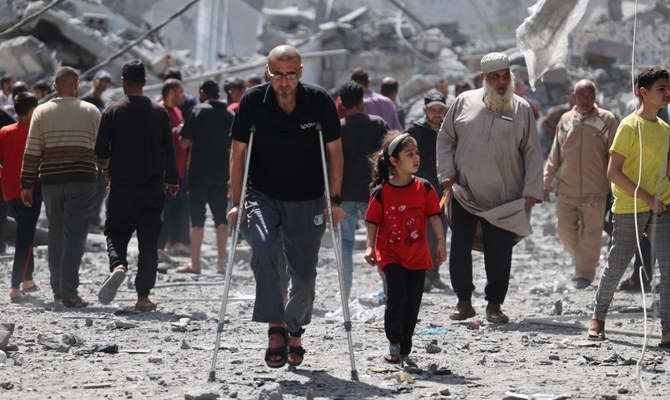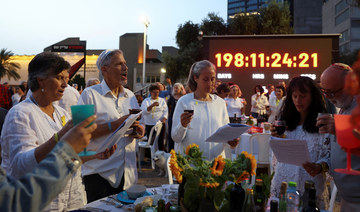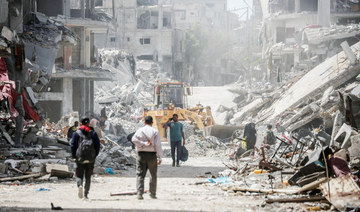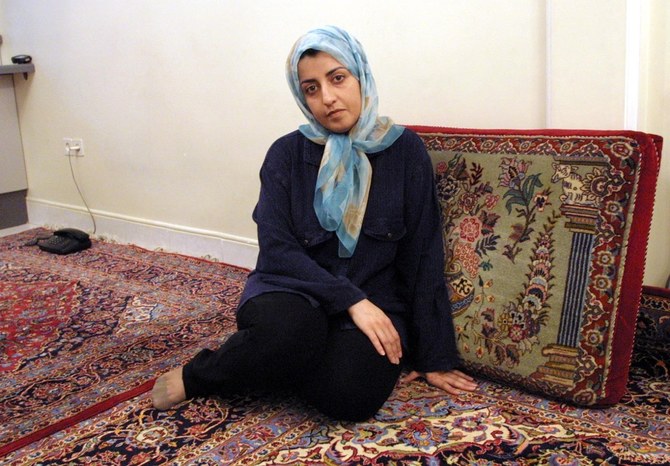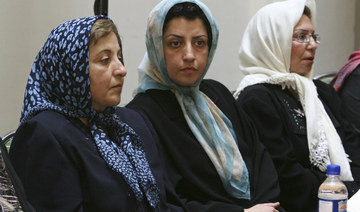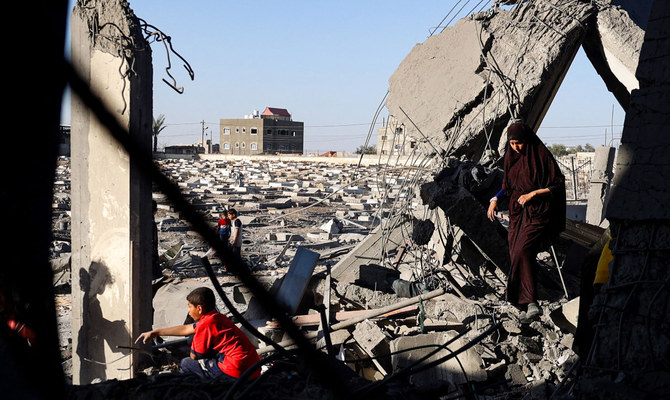ANKARA: Turkish citizens gave President Recep Tayyip Erdogan sweeping new powers in a historic referendum on Sunday, transforming Turkey’s political system from parliamentary to presidential and restructuring its executive, legislative and judicial branches.
“Yes” votes led the referendum in a narrow and controversial victory, with a high turnout reaching 86 percent.
According to the official state news agency Anadolu, the “yes” vote received about 51.3 percent of the vote. Surprisingly, Istanbul, Ankara and Izmir — the country’s three major cities — voted “no.”
Speaking to the party supporters in Antalya, Turkey’s foreign minister Mevlut Cavusoglu likened the referendum result to the birth of a “new Turkey” where “there will be stability and trust.”
Erdogan also thanked the “yes”- voters supporting political party leaders and the voters on the referendum victory.
He also said he will approve the reinstatement of the death penalty if lawmakers submit a bill, or if Turkey holds a referendum to bring it back.
Delivering a speech at the ruling Justice and Development Party (AKP) headquarters in Ankara after the referendum results, Turkey’s prime minister thanked all voters.
“Turkish nation gave the final word by saying ‘yes.’ ‘No’ voters are of same value as ‘yes’ voters. There are no losers in the referendum, the entire nation won from it,” Binali Yildirim said.
Erdogan also spoke in Istanbul after the referendum victory and called on the international community to respect the result of the referendum in which 25 million people voted ‘yes,’ leading by 1 million votes the ‘no’ votes.
“(The) new system will enter into force with elections to be held in 2019,” Erdogan said. “It is easy to preserve the status quo, but defending the change is the challenging one and we achieved it.”
While the proposed changes are fully endorsed by the AKP and Nationalist Movement Party (MHP), the main opposition Republican People’s Party (CHP) and the pro-Kurdish Peoples’ Democratic Party have opposed the changes, claiming that the result would be a one-man rule with no separation of powers or a checks-and-balances system.
According to the referendum, the post of prime minister will be abolished and the president will be the sole head of the executive branch. He will decide on the number of vice-presidents and ministers and appoint them without the need for parliamentary approval.
The president will also play a legislative role through presidential decrees and exercise a veto power over the decisions of the parliament except for those backed by a two-thirds majority, which is not common in democratic parliaments.
The referendum process has also been widely criticized mainly because it is taking place when the country is under emergency rule, with basic rights such as organizing political meetings subject to the approval of governors.
“I don’t see this referendum as fair because the campaigns of the opposition were hindered throughout the country, while state funds were mainly allocated for the ‘yes’ campaign along with the state-run and pro-government media channels trying to indoctrinate people and silence and intimidate the dissident voices,” Aysegul Demirel, a voter from Ankara, told Arab News. “So such a constitution doesn’t seem (to be) the outcome of a social compromise.”
But Ismail Ozkanli, a pharmacist from the northwestern city of Rize, said he voted “yes” in the referendum because he wants a stable and stronger Turkey against the pressures of the West and other “dark circles” that want to divide the country.
Kader Sevinc, CHP representative to the EU, said the referendum process took place under very unfair conditions.
“It was an unfair campaign because naysayers (and) opponents were called terrorists, have faced threats, violence, arbitrary detentions, disproportionate TV airtime. We estimate that the government’s influence extended to 90 percent of the Turkish media,” Sevinc told Arab News.
“This referendum was a choice between saying goodbye to democracy in all its surviving manifestations and giving Turkey another chance to reclaim its secular democracy."



